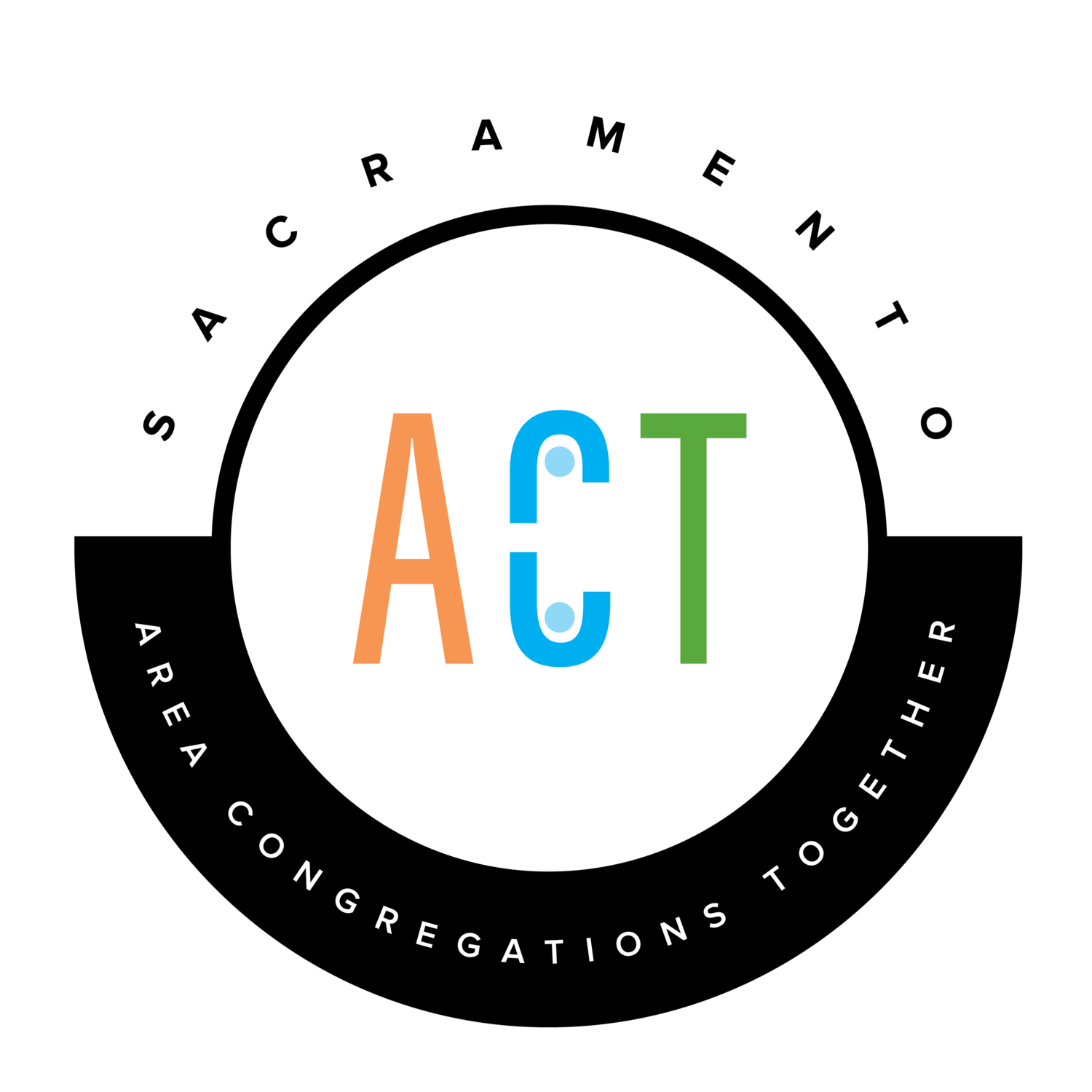2015: A Year in Review
Sacramento ACT’s work is grounded in a principle shared among faith traditions: to actively create a Beloved Community in which all are worthy and included. In 2015 ACT leaders worked on a number of fronts to bridge racial and economic divides to bring about a more just and equitable community.
Pope Francis called for a Year of Encounter inviting all of us to have intentional conversations and to build relationships with “the other”. It is through these conversations and relationships that we create a foundation of understanding and begin to recognize the dignity in each person. Addressing the World Meeting of Popular Movements, he said, “There is an invisible thread joining every one of those forms of exclusion: can we recognize it? These are not isolated issues. I wonder whether we can see that these destructive realities are part of a system which has become global. Do we realize that that system has imposed the mentality of profit at any price, with no concern for social exclusion or the destruction of nature? If such is the case, I would insist, let us not be afraid to say it: we want change, real change, structural change.“
ACT leaders build intentional relationships with each other, and with others in the community, to build their power and ability to effect structural change.
When leaders from across the PICO National Network met in Philadelphia, ACT leaders deepened their understanding of the links between mass incarceration and mass deportation, seeing the common struggle of the Black and Brown communities.
Leaders from the Campaign for Citizenship and the Live Free campaign met jointly in research meetings to understand the shared impact of the County Sheriff’s contract with ICE, seeing the links between immigration and incarceration.
Sacramento ACT was a key member of the coalition that won the restoration of health coverage for 3000 undocumented residents from the County of Sacramento, as well as increased funding to decrease Black infant mortality. We collaborated with over 30 local community non-profit partners in this campaign, including medical students from UC Davis Medical Center, under the leadership of the Building Healthy Communities coalition.
ACT leaders worked to implement Proposition 47, reaching out to those who could benefit from changing their record, and explored what it means to reinvest in people and the community rather than to incarcerate. We built relationships with the Probation Department and the District Attorney’s Office as we worked on these issues.
ACT leaders worked with PICO leaders from across the state to win the passage of AB953 which requires law enforcement agencies across the state to keep and report statistics on racial profiling as a means to highlighting and ending this practice.
We led the Treat Don’t Charge campaign, seeking the release of a young man who was jailed after a mental health breakdown, rather than provided with mental health treatment, identifying the lack of mental health treatment resources as a critical issue facing Sacramento.
ACT leaders worked with schools, congregations and community groups to expand the practices of Social Emotional Learning and Restorative Justice as a means to reducing violence, supporting the healthy development of our youth, and interrupting the school to prison pipeline. In the process, congregations deepened their conversations about structural oppression and racial injustice.
ACT leaders worked with English Language Learners to amplify their voices in the local school funding decisions and identified the critical need for bilingual counselors.
To address homelessness, we advocated for affordable housing in the City budget and successfully removed some exemptions, as well as advocating with the County for an increase in funding for the winter shelter.
While SEIU Local 1000 and Sacramento ACT had partnered on a number of issues (affordable housing, the passage of Prop 47), through our shared work on the minimum wage campaign, ACT leaders deepened their relationship with other SEIU Local 1000 members, developing common ground between congregations and labor, so that we cannot be divided and played against each other.
ACT leaders worked for racial and economic justice throughout 2015, bringing our moral vision into the public arena and raising the moral contradiction between who we say we are as a community and what we do, between what we say we value, and what we fund in our city, county and state budgets.
